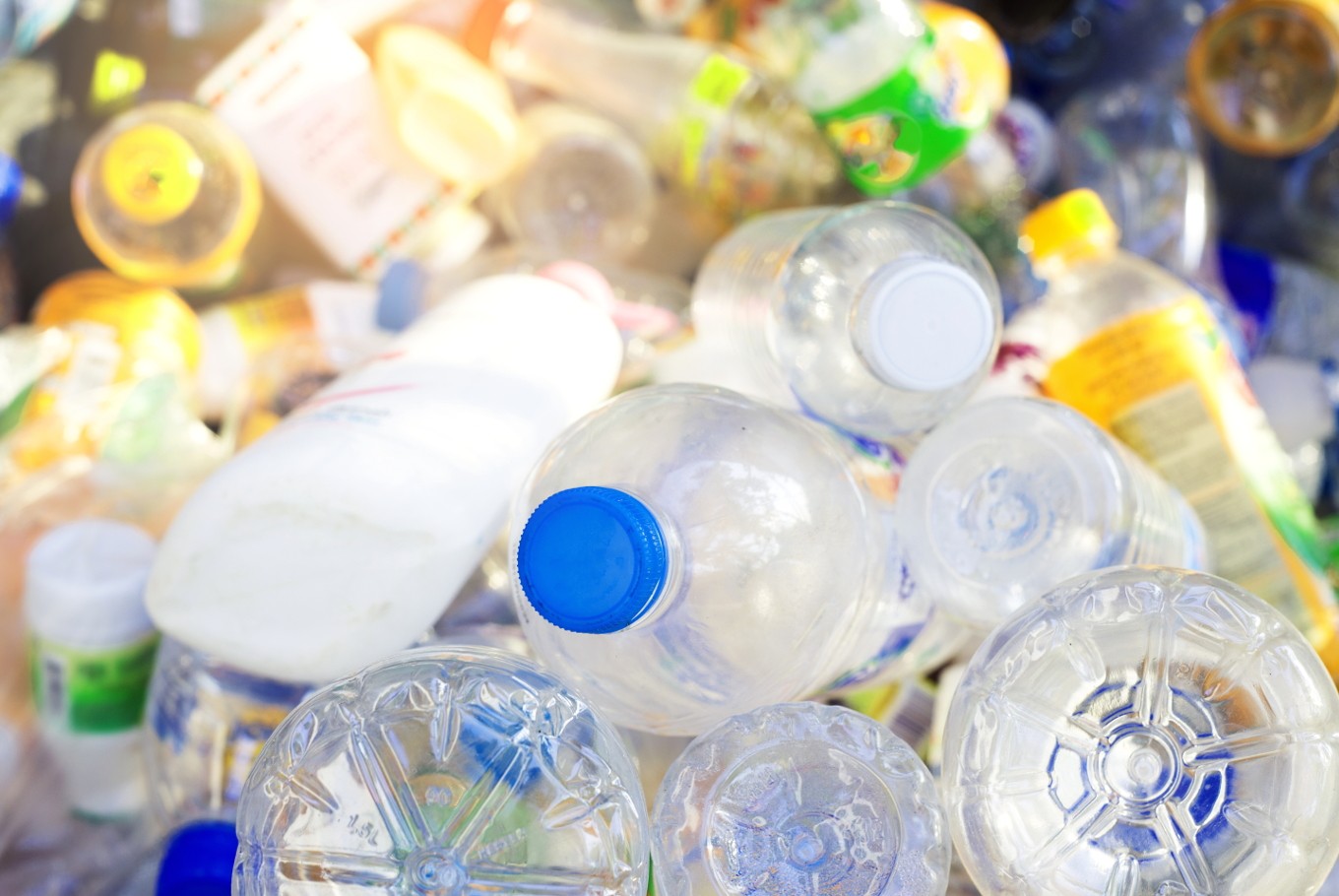Popular Reads
Top Results
Can't find what you're looking for?
View all search resultsPopular Reads
Top Results
Can't find what you're looking for?
View all search resultsChildren take center stage in waste bank initiative
In Yogyakarta, households who burned their waste reached 67.92 percent, according to the Central Statistic Agency’s (BPS) latest national survey. Those who recycled their trash accounted for less than 1 percent.
Change text size
Gift Premium Articles
to Anyone
A
fter school, sixth grader Aulia Wulan helps serve coffee and instant noodles at her aunt’s food stall in Bantul regency, Yogyakarta.
The 12-year-old girl then disposes of mineral-water bottles and instant noodle and coffee packages into two baskets provided by her father, Muhasim, 48, who helps her sort them properly.
Since becoming a customer of the Gemah Ripah Waste Bank in Badegan village in Bantul, the first waste bank in Indonesia, Aulia now understands the concept of separating waste and the value of trash.
Muhasim regularly visits the waste bank with recyclable items to exchange for money that is recorded in Aulia’s waste-savings book.
“She will withdraw the money after graduating and will use it to buy junior high school books,” he said, adding that she withdrew up to Rp 500,000 (US$36) in November last year.
Founded by Bambang Suwerda in February 2008, Gemah Ripah aims to reduce the volume of household waste that poses environmental and health risks in Yogyakarta.
Bambang, who is a lecturer at Poltekkes Kemenkes Yogyakarta, said his waste bank focused on educating people, especially the young. Gemah Ripah has many child customers. Parents, who want to open an account, have to register the account books in their children’s name.
Read also: From trash to healthcare in Malang
“We want children to get used to managing their waste properly so it doesn’t just end up in trash cans and landfills or just burned,” he said, adding that incinerating waste would produce a variety of toxins that could contaminate the air, water and land.
In Yogyakarta, households who burned their waste reached 67.92 percent, according to the Central Statistic Agency’s (BPS) latest national survey. Those who recycled their trash accounted for less than 1 percent.
Because Gemah Ripah accepts sorted trash only, children also learn how to sort organic, inorganic and toxic waste at home. Different prices are applied to different recyclables, such as Rp 500 for 1 kilogram of plastic bags, Rp 1,000 for cardboard and Rp 1,200 for newspapers.
“Children learn that saving garbage is like saving money,” Bambang said, adding that his trash bank also boosted children’s love for the waste bank through a drawing competition.
Gemah Ripah also buys used cooking oil to stop people from dumping it in drains. The collected recyclables are processed into usable products like sandals and handbags at Gemah Ripah’s recycling business units or sold to other recycling plants.
The idea to establish Gemah Ripah came to Bambang after a 6.2-magnitude earthquake hit Yogyakarta in May 2006.
At the time, the government gave survivors cash to rebuild their damaged houses and to buy food and other essentials. However, they dumped garbage, like plastic packaging, everywhere, which created health problems. The Health Ministry reported that in 2007, over 2,000 people suffered from dengue fever in Yogyakarta, including Bambang’s neighbors.
He then set up Bengkel Kesling (an environmental health workshop) to highlight the importance of water and waste management. A year later, Bengkel Kesling became Gemah Ripah Waste Bank.
Despite facing initial rejection, people gradually accepted the idea and Bambang was soon invited to spread his message across Yogyakarta. Today, the province has 24 trash banks with monthly revenues of Rp 9 million on average in each bank, according to the Health Ministry. Bambang’s hometown, Bantul, won the Adipura environmental award for cleanliness and green awareness in 2016.
In 2011, the ministry adopted and replicated the Gemah Ripah model nationwide through the Waste Bank National Training Center, where Bambang formulated requirements and procedures. The number of garbage banks across the archipelago increased by 22 percent from 4,280 in 2016 to 5,244 last year.
Every year, Indonesia produces 65 million tons of trash, with 43 percent being inorganic waste such as plastic, cans and paper. About 76 percent is not recycled and most people do not sort their waste, which ends up on open landfills, the Environment and Forestry Ministry says.
Gemah Ripah, which currently has around 1,200 customers, inspired many people, including Gamal Albinsaid who is known as the trash doctor for founding the Garbage Clinic in Malang, East Java, in 2010 where patients can trade trash for free health care.











